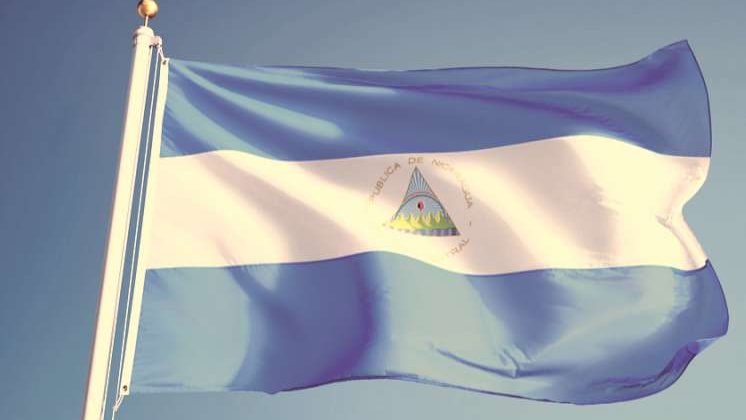The streets of Nicaragua were filled on July 28 by thousands of demonstrators supporting the country’s bishops and priests after repeated attacks by paramilitaries with ties to the government.
The march was organized by the Outcry for Nicaragua movement and the Civic Alliance for Justice and Democracy. Its theme was “Pilgrimage for our bishops, defenders of truth and justice.” The Nicaraguan Bishops’ Conference did not participate in the event.
The march, which concluded at the Managua cathedral, took place after Ortega accused the bishops of being “part of the plan with those plotting a coup,” after they proposed that he hold early presidential elections to alleviate tensions in the country and not run for office again.
Participants in the demonstration carried banners with phrases such as “Thank you, courageous bishops, for being with your people” and “The bishops, heroes of peace.” They chanted, “Bishop, friend, the people are with you.”
Members of other Christian denominations and Mormons also attended the march.
Elma Amador, who is Mormon, told El País news that President Ortega “knows he’s lying, he knows the bishops are not attempting a coup.”
“He’s afraid that the people have risen up, have woken up, and that’s why he makes baseless accusations.”
From the cathedral of the Nicaraguan capital, Carlos Avilés, vicar general of the Archdiocese of Managua, told the demonstrators that “the Catholic Church, even if it is mistreated, even though they criticize it, will always choose justice and dialogue.”
Since April 18, there have been massive demonstrations in Nicaragua against President Daniel Ortega, who has been in power since 2007 and was reelected in 2016 in elections disputed by the opposition. In January 2014, he oversaw the abolition of presidential term limits.
The demonstrations have been put down by police and paramilitaries, with more than 400 deaths.
The Catholic Church has participated as a mediator and witness to national peace talks convened by Ortega. However, Church officials have also faced attacks from groups with ties to the government.
Earlier this month, Cardinal Leopoldo Brenes, apostolic nuncio Archbishop Waldemar Stanislaw Sommertag, and Bishop Silvio Báez were assaulted during a pastoral visit to Diriamba.
Divine Mercy parish in Managua, where more than 100 students had taken refuge, was also attacked by police and paramilitaries during the night of July 13. The following day, pro-government mobs attacked the car of Bishop Abelardo Mata of Estelí.
Cardinal Brenes of Managua posted a message on the archdiocese’s Facebook page the day after the July 28 march. He thanked “the lay people of the Catholic Church, our faithful, as well as many members of the other sister churches that joined that pilgrimage, and also other organizations, men and women of good will who came together to support the work the Bishops’ Conference is doing.”
The cardinal said that “the bishops of Nicaragua took up this request of the Presidency to participate as mediators and witnesses [in the national peace talks to resolve the crisis]; and we are doing it with an attitude of service.”
“We are rendering a service, but we do not seek to be kings, nor president, nor ministers, nor anything of the kind, we are just servants,” he stated.
“Our thanks to all those brothers who yesterday demonstrated here in Managua and in other dioceses…we ask your for your prayers since that is what strengthens us.”
This article was originally published by our sister agency, ACI Prensa. It has been translated and adapted by CNA.

